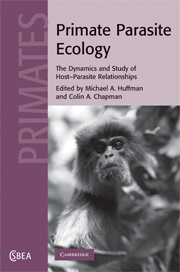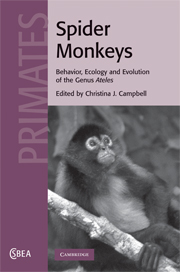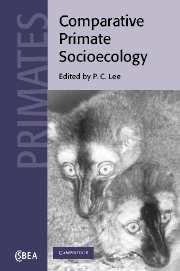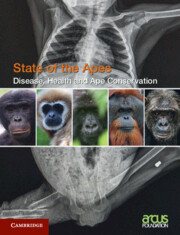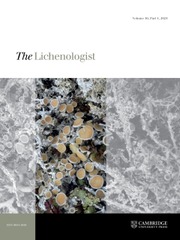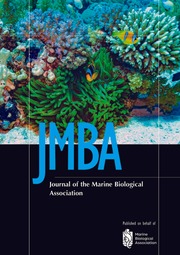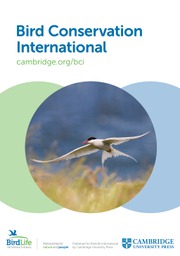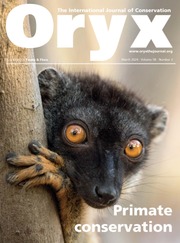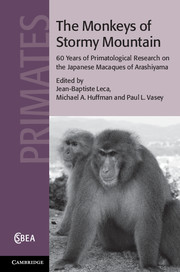Primate Parasite Ecology
Anyone who has spent an extended period in the tropics has an idea, through caring for others or first-hand experience, just what it is like to be a primate parasite host. Monkeys and apes often share parasites with humans, for example the HIV viruses which evolved from related viruses of chimpanzees and sooty mangabeys, and so understanding the ecology of infectious diseases in non-human primates is of paramount importance. Furthermore, there is accumulating evidence that environmental change may promote contact between humans and non-human primates and increase the possibility of sharing infectious disease. Written for academic researchers, this book addresses these issues and provides up-to-date information on the methods of study, natural history and ecology/theory of the exciting field of primate parasite ecology.
- Contains chapters that point the academic community in new directions for investigations
- Combines theory and practice to give a well-rounded understanding of how parasite host systems operate
- Written in a straightforward style that is accessible to non parasitologists, and will appeal to a wide audience, including primatologists and conservation biologists.
Reviews & endorsements
"This volume provides a comprehensive look at the relationships between primates and their parasites. Overall, this volume is a summary of the current research being conducted in the field of primate parasitology. The combination of traditional studies and newer concepts should provide cogent information for researchers and professionals across the varied areas of primate parasitology."
Sara K. Martin for The Quarterly Review of Biology
Product details
March 2009Hardback
9780521872461
548 pages
235 × 157 × 30 mm
0.99kg
Available
Table of Contents
- Primate disease ecology: an integrative approach
- Part I. Methods to Study Primate-Parasite Interactions:
- 1. Collection methods and diagnostic procedures for primate parasitology
- 2. Methods of collection and identification of minute nematodes from the feces of primates, with special application to coevolutionary study of pinworms
- 3. The utility of molecular methods for elucidating primate-pathogen relationships – the Oesophagostomum bifurcum example
- 4. The application of endocrine measures in primate parasite ecology
- 5. Using agent-based models to investigate primate disease ecology
- Part II. The Natural History of Primate–Parasite Interactions:
- 6. What does a parasite see when it looks at a chimpanzee?
- 7. Primate malarias: evolution, adaptation, and species jumping
- 8. Disease avoidance and the evolution of primate social connectivity: Ebola, bats, gorillas, and chimpanzees
- 9. Primate-parasitic zoonoses and anthropozoonses: a literature review
- 10. Lice and other parasites as markers of primate evolutionary history
- 11. Cryptic species and biodiversity of lice from primates
- 12. Prevalence of Clostridium perfringens in intestinal microflora of non-human primates
- 13. Intestinal bacteria of chimpanzees in the wild and in captivity - an application of molecular ecological methodologies
- 14. Gastrointestinal parasites of bonobos in the Lomako Forest, Democratic Republic of Congo
- 15. Habitat disturbance and seasonal fluctuations of lemur parasites in the rain forest of Ranomafana National Park, Madagascar
- 16. Chimpanzee-parasite ecology at Budongo Forest (Uganda) and the Mahale Mountains (Tanzania): influence of climatic differences on self-medicative behavior
- Part III. The Ecology of Primate–Parasite Interactions:
- 17. Primate exposure and the emergence of novel retroviruses
- 18. Overview of parasites infecting howler monkeys, Alouatta sp., and potential consequences of human-howler interactions
- 19. Primate parasite ecology: patterns and predictions from an ongoing study of Japanese macaques
- 20. Crop raiding: the influence of behavioral and nutritional changes on primate-parasite relationships
- 21. Can parasites infections be a selective force influencing primate group size? A test with red colobus
- 22. How does diet quality affect the parasite ecology of mountain gorillas?
- 23 Host-parasite Dynamics: Connecting Primate Field Data to Theory
- Part IV. Conclusions:
- 24. Ways forward in the study of primate disease ecology
- 25. Useful diagnostic references and images of protozoans, helminths, and nematodes commonly found in wild primates.

